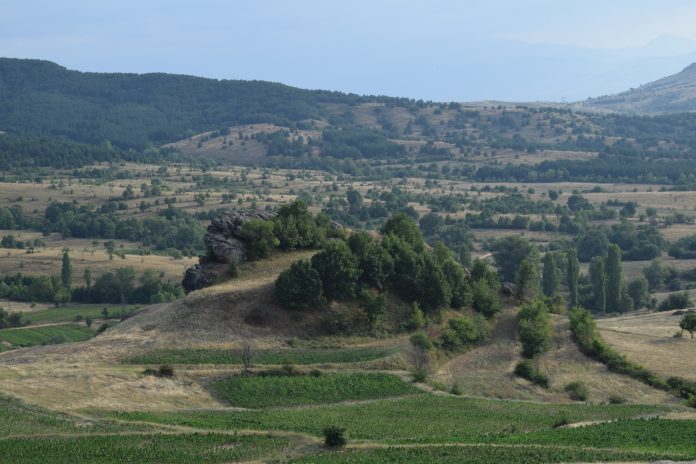The cash strapped Macedonian government is looking to sell large chunks of high-quality, arable land throughout the country according to a new Law proposal, with fears it’s mismanagement will put local stakeholders and the country at high risk to corporations and neighboring states.
2.5 billion euros could be raised from the sell off as changes to the existing Law from 2013 are going to significantly relax the rules to purchasing state-owned land to attract domestic and foreign investment to this strategic national resource.
The Ministry of Agriculture, headed by Arjanit Hoxha, announced Monday it is going to start with public bidding for 50,000 hectares of land. Starting prices for a square meter range between 0.20 cents and one euro, depending on the type and quality.
Although existing concessionaires are given the advantage to buy the same land, foreign buyers are also eligible, as long as their stock share in the domestic company is not greater than 49%.
Macedonia has more than half a million hectares of arable land and the state owns 41% of it.
For scale, state-owned land equals 427,269 average-sized American football stadiums.
Activists and experts say the Law proposal can have devastating effects in multiple areas.
Large corporations who decide to put huge tracts of land under cultivation can squeeze out small-scale farmers, who will, in turn, lose their ability to compete on the market.
Environmental activists, such as the O2 group, and agricultural associations from around the country, are worried about particular details of the bill.
Both groups that initially oppose the bill, have called on the government to include scientists, experts and farmers in drafting it, due to a number of possible inconsistencies.
O2 has stated that owners will be allowed to construct objects on the land, as long as the structure serves a purpose in agricultural or commercial activity.
Owners can also lease out or sell the land ten years after the original purchase. According to O2, the owners can conduct geological exploration for the purpose of exploiting the land for minerals.
Current laws for mineral exploitation have led to hillsides across the country being blasted away for the purpose of rock and gravel excavation and river beds are being scooped for silt and sand.
Multiple complaints have been filed by local residents and environmental groups but the government has acted on only a handful.
This raises the question of whether domestic and foreign buyers will be able to evade aspects of the law which enable them to raise structures that serve purposes that have little to do with the storing and processing of agricultural products.
To some, selling national land is equal to selling away Macedonia. Multiple international examples of what is called a “land-grab” have resulted in corporations exploiting natural resources and endangering wildlife and the lives of local residents, such as in the example of Ecuador and palm oil plantations – one of the hundreds of cases from around the world.
When it comes to the selling of state-owned land to buyers from other EU states, new member states are required to adopt such laws within six or seven years from joining.
It is notable that Croatia requested from the EU to extend this time frame for three more years based on requests coming from the country’s agricultural sector.
This goes to show that Macedonia is getting ready to implement a Law that can have far-reaching consequences for the domestic economy.
The SDSM-led government, which is cash-strapped during a terrible period for the Macedonian economy, is looking to bring in much-needed revenue. Selling national land is one way to do it.
One of the most striking details about the Law is the price of the land. A square meter can cost between 0.20 cents and one euro, depending on the quality.
At such low prices, Macedonia’s land resource becomes attractive to domestic and foreign buyers, including private and alongside them, national interests from the Balkan neighbourhood.
If the SDSM/DUI administration succeeds in passing the Law proposal, it can potentially bring in as much as 2.5 billion euros to the state and local governments, but lose 20% of Macedonia’s best arable land to foreign buyers.



